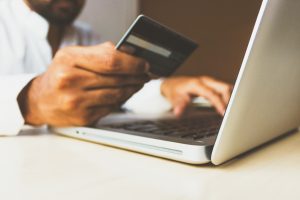 Here and there, the federal government (and some state governments) have instituted financial relief for consumers due to coronavirus. This has come in the form of one-time monetary credits that nearly all Americans have received and suspension of student loan payments, among other measures. This blog will relay the key points of both of those federal efforts, including ways you can fight back if you have not received the benefits you are entitled to.
Here and there, the federal government (and some state governments) have instituted financial relief for consumers due to coronavirus. This has come in the form of one-time monetary credits that nearly all Americans have received and suspension of student loan payments, among other measures. This blog will relay the key points of both of those federal efforts, including ways you can fight back if you have not received the benefits you are entitled to.
What Your Stimulus Payment CANNOT Be Used For
By and large, your stimulus check will be protected. Notably, the money cannot be taken by the IRS to satisfy any tax debts or for any repayment plans you currently have with the agency. Also, individuals who are on a Chapter 13 bankruptcy repayment plan will not see their payments increase due to receipt of stimulus money.
Reasons Your Stimulus Check Can Be Garnished
There are a few circumstances that may lead to some or all of your stimulus money being taken to satisfy old debts. Here are a couple of ways that can legally happen:
- Past-due child support that has been sent to the federal Treasury Offset Program by your state can be taken out of your stimulus check. This applies even if you are undergoing financial hardship. This can present for a partner who jointly filed taxes with someone else who is behind on child support payments. If you are in this situation, you will need to fill out IRS Form 8379.
- If your bank is one of your creditors and your stimulus check was directly deposited into your account there, the bank may be able to collect your check. Additionally, the lack of a federal rule prohibiting private debt collectors from collecting debt that is the subject of a court order makes your stimulus money vulnerable in that way.
Federal Student Loan Relief
As a partial measure to provide relief for holders of student loans (relative to those calling for complete student loan forgiveness), the CARES Act allowed for principal and interest payments of federally held student loans to be suspended through Sept. 30, 2020. Holders of federal student loans that are in default are also granted a reprieve from paying.
Unfortunately, the suspension does not apply to private loans; additionally, some federal loans are actually owned by commercial lenders and are, therefore, not required to provide a suspension. Many private entities have, however, instituted forbearance periods. You should contact your provider for more information on your specific situation. Your provider might allow you to temporarily switch repayment structures or go to a plan that still requires principal payments but does not accrue interest.
If you suspect that your stimulus check or any other form of financial relief was unfairly taken from you, you may have had your legal rights violated and you should reach out to a consumer protection attorney immediately.

